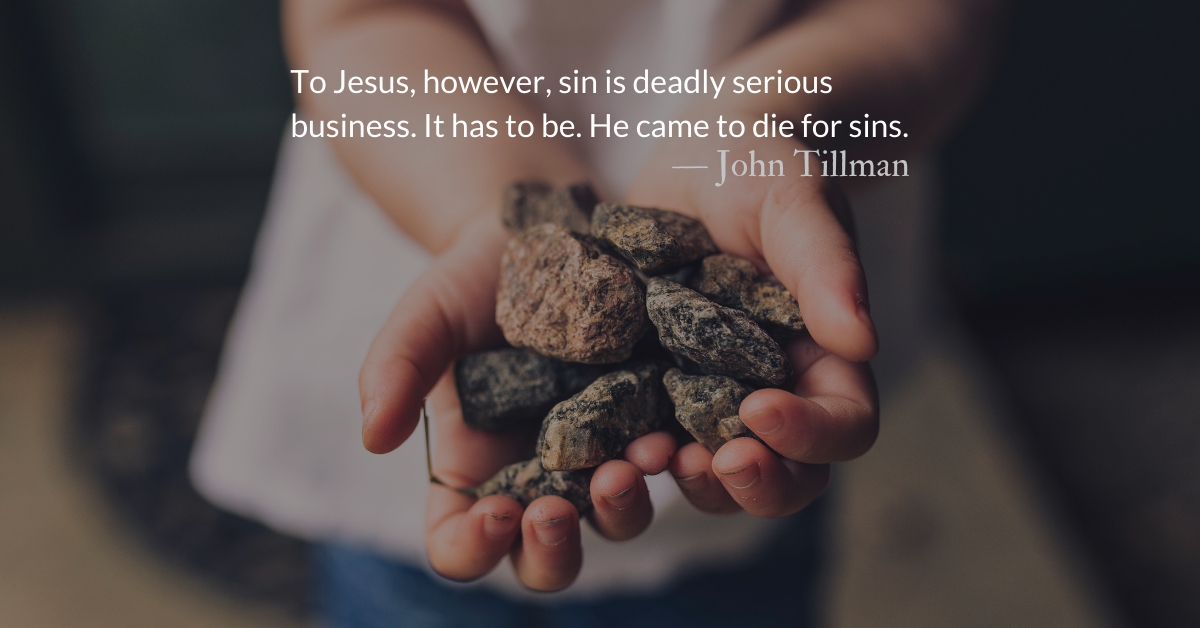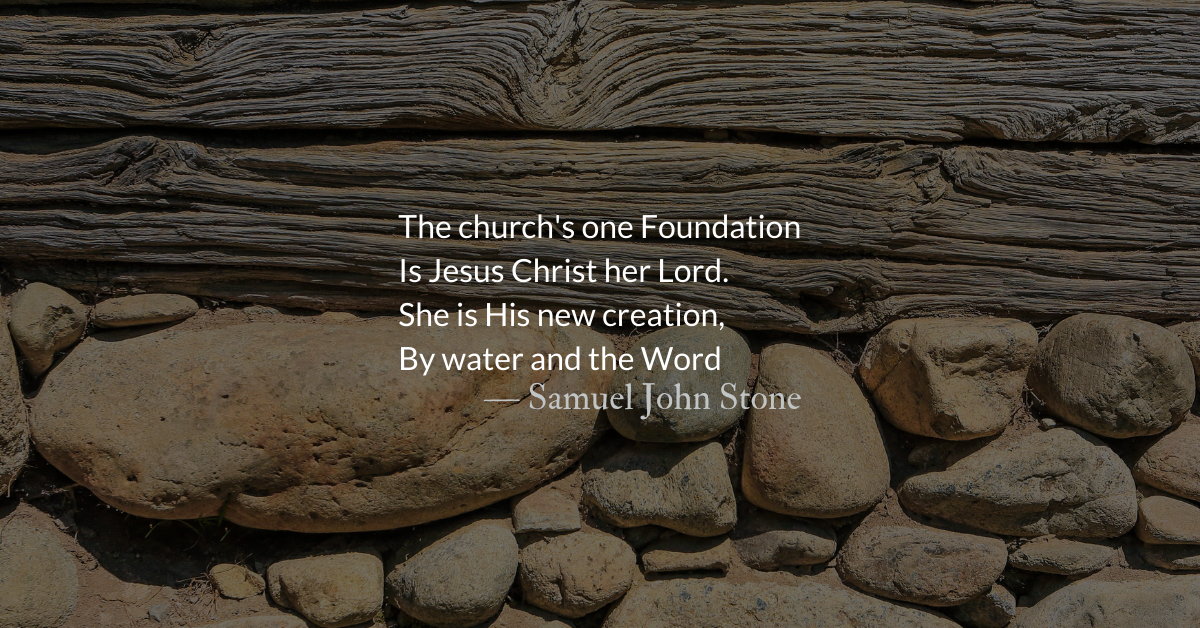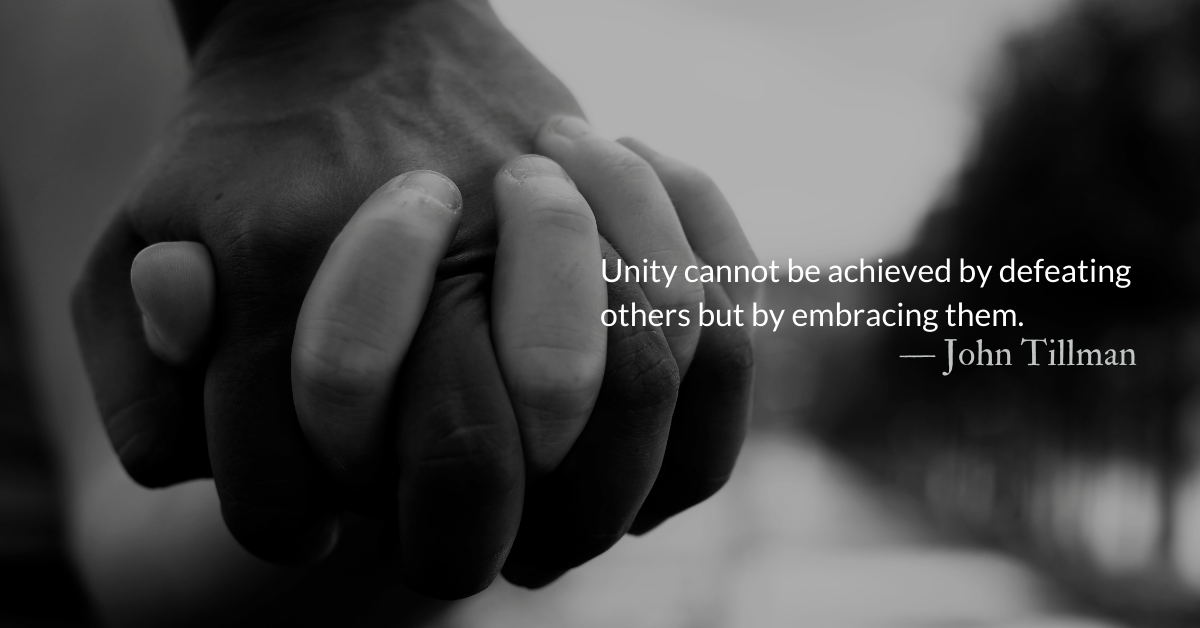Scripture Focus: John 8.11
Jesus declared. “Go now and leave your life of sin.”
From John: In rewriting this post from 2019, I was reminded of how much worse our culture’s polarization has become in just two years. There are many voices in culture and the political world, on the left and the right, who take only certain sins seriously. But Christ who died for sins, takes them all seriously.
Reflection: Taking Sin Seriously
By John Tillman
Some might summarize this passage like this: The Pharisees catch a woman in adultery but Jesus lets her go. Except that’s not what happened at all.
Jesus is kind and loving but is not a pushover who winks at adultery and doesn’t take sin seriously.
To think this, one must ignore Christ’s words to the woman, and his actions in the remainder of the gospel of John. Jesus takes sin far more seriously than anyone in this entire scene.
The Pharisees don’t take the law or sin seriously. If they did, the woman’s sexual partner would be present and under the same sentence. To them, the woman and God’s law are just props for their attack on Jesus.
To Jesus, however, sin is deadly serious business. It has to be. He came to die for sins.
“Go now and leave your life of sin,” is an unambiguous acknowledgment of the fact of the woman’s sin and an unmistakable command to repent. Christ does not condemn her, because he is taking her condemnation on himself.
Jesus is not a distributor of what Dietrich Bonhoeffer would describe as “cheap grace:”
Cheap grace means the justification of sin without the justification of the sinner. Grace alone does everything, they say, and so everything can remain as it was before.
Costly grace is…costly because it costs a man his life, and it is grace because it gives a man the only true life. It is costly because it condemns sin, and grace because it justifies the sinner.
The true grace Jesus offers is costly. It is so costly that the wealthy, rich, powerful members of society drop their stones and walk away from it. They cannot bear the cost to their pride. It is so costly the lustful won’t look at it. It is too costly for them to give up their lusts.
Jesus doesn’t “let the woman go.” He sends her out. Jesus, instead of taking the woman’s life, redeems it. He buys it for his own.
When we see ourselves in this passage, we should not see ourselves as members of the crowd, shamed into forgiving the woman and dropping our stones. We should see ourselves as the shamed woman, freed and sent out to live anew.
We have been bought with a price and sent into the world, leaving our lives of sin.
Divine Hours Prayer: The Cry of the Church
O Lamb of God, that takes away the sins of the world, have mercy upon me.
O Lamb of God, that takes away the sins of the world, have mercy upon me.
O Lamb of God, that takes away the sins of the world, grant me your peace.
– Divine Hours prayers from The Divine Hours: Prayers for Springtime by Phyllis TickleToday’s Readings
Exodus 29 (Listen – 6:23)
John 8 (Listen – 7:33)
Read more about Three Armies of Sin :: Throwback Thursday
Sin has hemmed us in with three strong, mighty armies. The first is our own flesh, the second the world, the third the evil spirit… — Martin Luther
Read more about A Singular Plea In Prayer :: Throwback Thursday
Christ died for nobody but real sinners, those who feel that their sin is truly sin. — Charles Haddon Spurgeon











